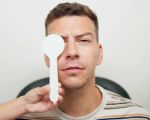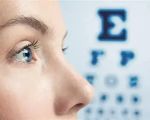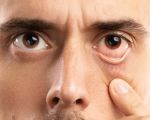
- why-daily-eye-care-matters-more-than-you-think
- best-daily-eye-care-habits-for-healthy-vision
- real-world-case-the-graphic-designer-who-saved-his-sight
- habits-backed-by-optometrists-and-science
- tools-and-products-that-support-daily-vision-health
1. Why Daily Eye Care Matters More Than You Think
In the digital age, our eyes work overtime. Between screens, low lighting, air conditioning, and endless scrolling, it’s no wonder more people are searching for the best daily eye care habits for healthy vision. Vision problems rarely arrive overnight. They build silently through daily neglect—and by the time symptoms appear, damage may already be underway.
The good news? Most eye issues caused by lifestyle habits are preventable with small, consistent actions. A few minutes a day can mean the difference between clear sight and years of struggling with eye strain, dryness, or even early-onset degeneration. Daily eye care is not just for seniors or contact lens wearers—it’s a foundational part of whole-body wellness at any age.
For personalized eye care kits and expert-reviewed products that suit your lifestyle, visit Eye Docs—where vision health meets convenience and trust.
2. Best Daily Eye Care Habits for Healthy Vision
2.1 Practice the 20-20-20 Rule Religiously
Every 20 minutes, take a 20-second break to look at something 20 feet away. This prevents digital eye strain, refreshes focus, and reduces muscular fatigue around the eyes. It’s simple, free, and often ignored—until it’s too late.
2.2 Clean Your Eyes Gently Every Day
Use lukewarm water to wash your eyelids or opt for a gentle, ophthalmologist-approved eyelid wipe. This helps prevent buildup of oils and debris that can lead to styes or irritation. Avoid harsh soaps or scrubbing—your eye area is delicate.
2.3 Stay Hydrated and Eat Vision-Friendly Foods
Eyes need hydration just like skin. Water supports tear production, which keeps eyes lubricated and comfortable. Diets rich in omega-3 fatty acids, vitamin A, lutein, and zeaxanthin help maintain retinal health and prevent macular degeneration.
2.4 Avoid Rubbing Your Eyes
Though it feels satisfying, rubbing can cause micro-abrasions on the cornea and even lead to conditions like keratoconus over time. If your eyes itch, use artificial tears or consult a specialist.
2.5 Get Enough Sleep—Your Eyes Heal Overnight
During sleep, the eyes replenish moisture and repair strain from the day. Less than 6 hours a night can lead to chronic dryness, red eyes, and even blurry vision.
2.6 Use Protective Eyewear When Needed
Whether you're working on a construction site or spending hours in front of a screen, eye protection matters. Wear blue light blocking lenses indoors and UV-blocking sunglasses outdoors—even on cloudy days.
2.7 Keep Regular Eye Exams on Your Calendar
Annual or biannual eye exams help detect early issues that you might not notice—like retinal thinning or subtle vision shifts. Catching problems early often means simpler, more affordable treatment.
3. Real World Case: The Graphic Designer Who Saved His Sight
Jordan, a 34-year-old freelance graphic designer, used to work 10+ hours daily on screens without breaks. He thought mild headaches and dry eyes were “just part of the job.” But one night, after a blurry vision episode, he visited an eye doctor who found early signs of digital eye strain and corneal fatigue.
By incorporating daily habits—20-20-20 breaks, artificial tears, ergonomic screen setup, and nighttime eye masks—he reversed his symptoms within weeks. “I thought eye care was something for older people. Now, I treat it like dental hygiene,” Jordan shared on his design blog.
Stories like his underscore how small changes can lead to big wins in vision health. The earlier you start, the better your long-term results.
4. Habits Backed by Optometrists and Science
4.1 Use Preservative-Free Artificial Tears
According to ophthalmologists, using artificial tears 2–4 times a day can greatly reduce discomfort for people who stare at screens. Preservative-free options avoid rebound irritation and are safer for long-term use.
4.2 Blink Exercises to Reset Eye Moisture
Studies show people blink 60% less often when staring at screens. Blinking helps rehydrate and protect the eye surface. Every hour, take 30 seconds to consciously blink every 3–4 seconds to reset natural moisture levels.
4.3 Nighttime Eye Support
If you sleep under a fan or in dry environments, use a humidifier or wear a soft sleep mask to retain moisture. This is especially useful for contact lens wearers or those recovering from laser procedures.
4.4 Warm Compresses for Oil Gland Health
Glands along your eyelids (Meibomian glands) help produce tear oil. Warm compresses, applied for 5 minutes a day, can help unblock these glands and reduce dry eye symptoms.
5. Tools and Products That Support Daily Vision Health
5.1 Blue Light Blocking Glasses
Not just a trend—these glasses filter out high-energy blue light emitted by screens, reducing fatigue, especially at night. Look for glasses with verified lab reports and user testimonials.
5.2 Humidifiers and Moisture Shields
Indoor air conditioning or heating dries out eyes. Tabletop humidifiers, moisture chamber glasses, or room-level filters make a big difference—especially in winter or arid climates.
5.3 Eye Vitamins and Supplements
Lutein, zeaxanthin, and omega-3s have been clinically linked to healthier retinas and better tear quality. Consult your optometrist before starting any supplement routine to ensure proper dosage.
5.4 Screen Adjustments and Ergonomic Tools
Position screens at eye level, keep brightness similar to ambient light, and use matte screen protectors. These reduce squinting, glare, and shoulder strain—factors that indirectly affect your visual comfort.
At Eye Docs, we’ve curated a trusted range of vision care tools and daily-use essentials, reviewed by licensed professionals and recommended by real users. Because healthy eyes deserve expert care, every day.








